The best mattress for back pain – advice from sleep experts
How to find the best mattress for back pain – we asked sleep experts for their top tips on easing aches and pains
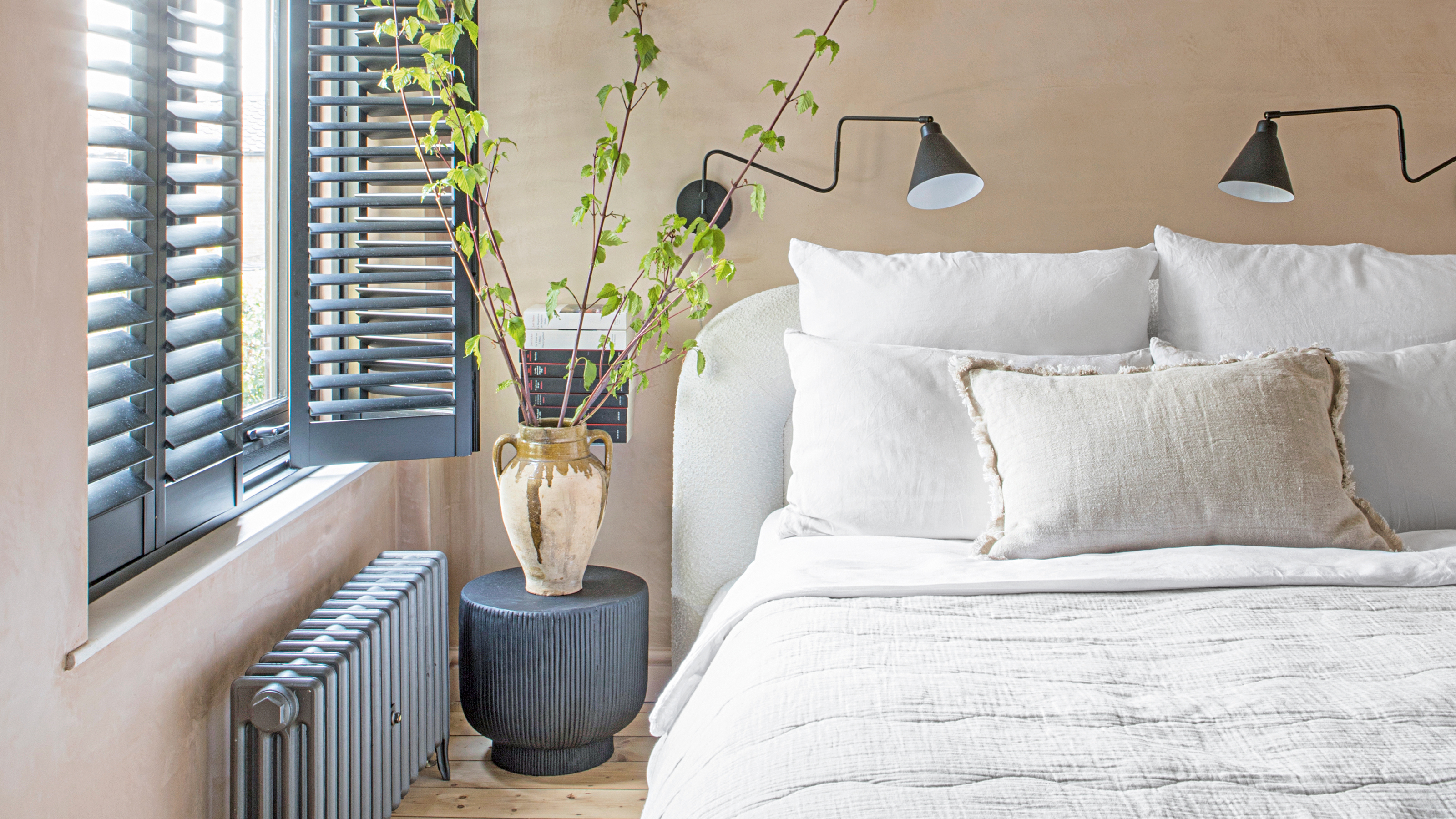

According to Google, in the UK there are currently 1300 online searches per month for ‘what is the best mattress for back pain’, which suggests that a high number of us are struggling to get comfortable at night. What's more, this is search trend has doubled over the past five years.
As Ideal Home’s Sleep Editor, and a regular tester of mattresses for our best mattress guide, it’s also a question I hear a lot, suggesting back pain is a growing sleep issue for many of us.
This is backed up by research published in the Journal of Orthopaedics and Traumatology that states that ‘low back pain has been identified as one of the main causes of poor sleep quality'.
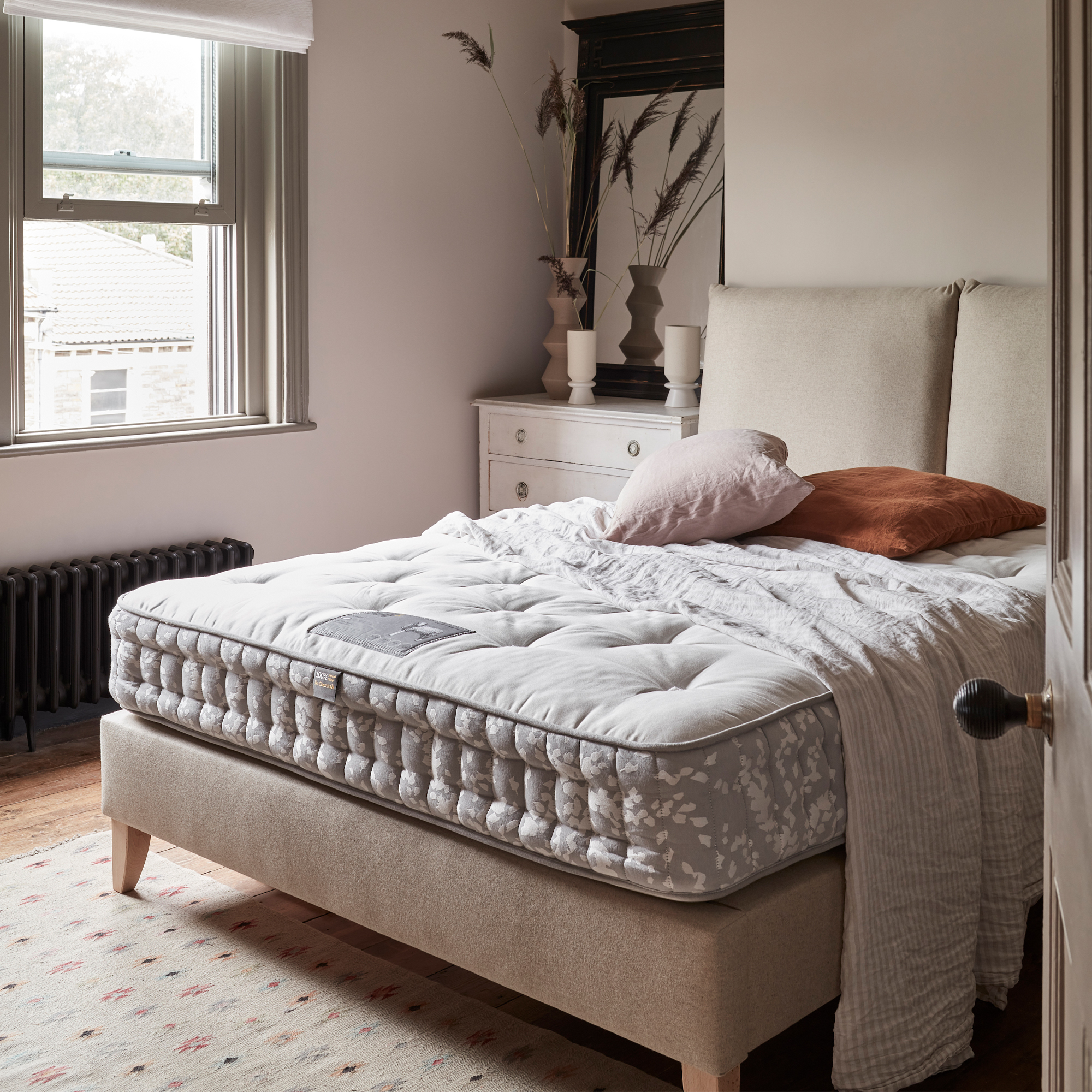
No wonder so many of us are hunting for the best mattress for back pain, or indeed, the best mattress for low back pain.
As such, I’ve enlisted the help of various sleep experts and osteopaths (medical professionals trained to detect, treat and prevent health problems by moving and stretching a person's muscles and joints) to help pin down which is the best type of mattress to invest in if you too are suffering from back pain.
What’s the best mattress for back pain?
So, without further ado, what is the best mattress for back pain? ‘Research generally suggests that a medium-firm mattress is best for alleviating lower back pain’ says Dave Gibson, registered osteopath, sleep expert, and founder of The Sleep Site.
In fact, the same researchers who published findings that low back pain is one of the most common causes of sleep discomfort also researched what type of mattress should be chosen to avoid back pain and improve sleep quality. They reviewed multiple published articles examining the impact that soft, medium-firm, extra-firm and specially customised mattresses had on the sleep quality of those with back pain.
Get the Ideal Home Newsletter
Sign up to our newsletter for style and decor inspiration, house makeovers, project advice and more.
Their overall conclusion was that ‘a medium-firm mattress promotes comfort, sleep quality and rachis alignment’. For those of us without medical training, rachis alignment means the alignment of the vertebral column or spine.
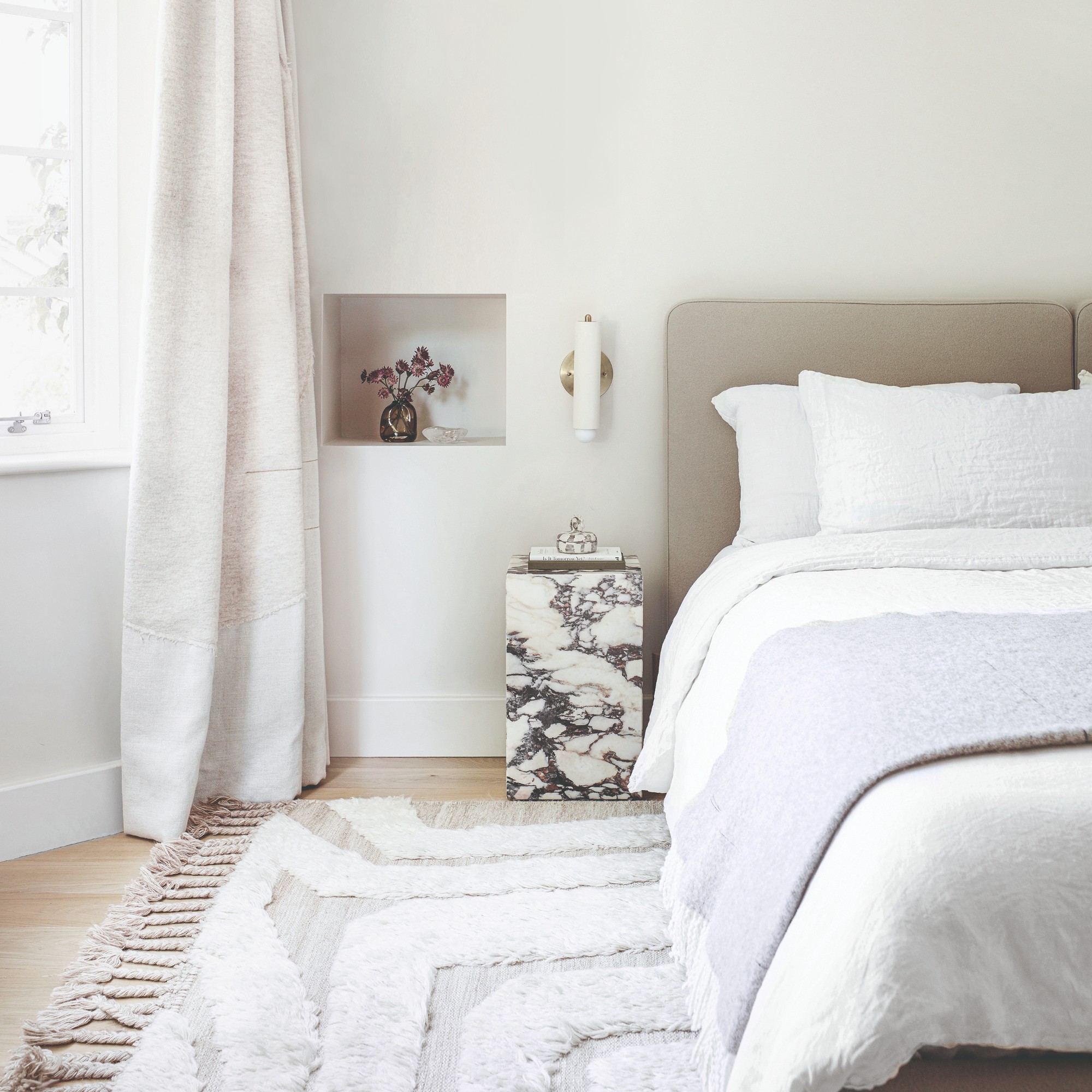
Dr Nerina Ramlakhan, sleep expert, author and physiologist, says that 'spinal alignment is key' in reducing back pain, and agrees that ‘old mattresses with sagging support will definitely exacerbate back pain. Mattresses that are too firm can also worsen back pain by pushing on pressure points and causing spinal misalignment’.
Osteopath Dave Gibson expands further, explaining, ‘a mattress that is too hard or too soft can exacerbate back pain or neck pain. Over time, as a mattress wears out, it tends to lose its ability to properly support your body. The initial sign of this wear is typically felt around your shoulders and hips, which can then sink too deeply into the mattress during the night. This misalignment pulls your spine out of its natural, relaxed position, increasing lower back pain’.
‘As the mattress continues to deteriorate, it may become even softer, causing your body to dip in the middle, creating an uncomfortable "U" shape’, he says.
‘Conversely, a mattress that is too firm can also worsen back pain,' Dave continues. ‘Here, if the mattress doesn't allow your body to be gently supported in a firm yet subtle contour, the spine and muscles may struggle to relax, and pressure points on your joints can become more sensitive’.
Overall, it seems fairly conclusive that a medium-firm mattress is the best place to start if you're looking for the best mattress for back pain.
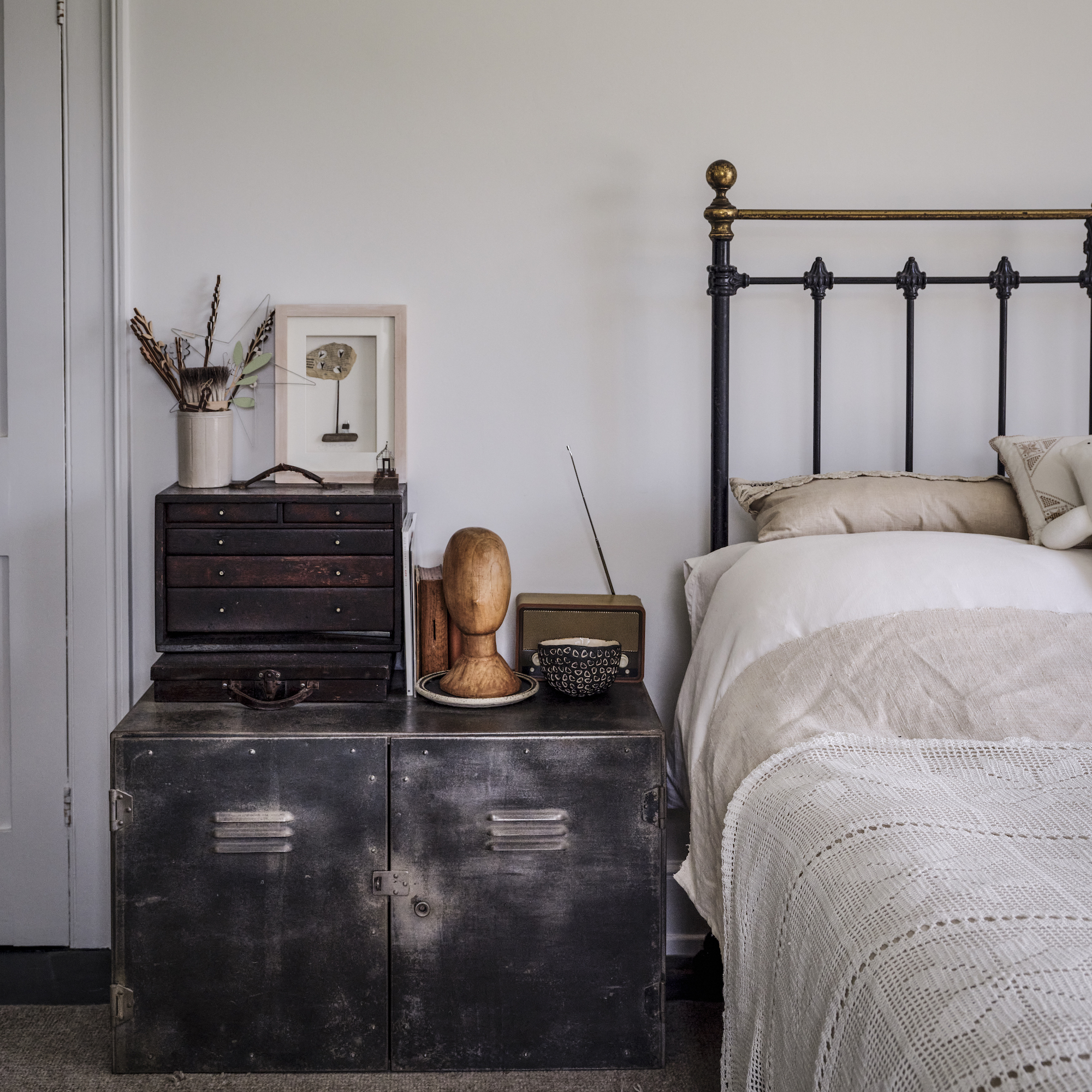
However, shopping for a medium-firm mattress could unfortunately be a little trickier than we might anticipate, and that's because we're all built differently.
As Dave Gibson explains, ‘research suggests that a medium-firm mattress is best for alleviating lower back pain. However, your body weight plays a significant role – heavier individuals may require firmer support, while lighter individuals might find a softer mattress more comfortable’.
This is because the heavier we are, the more we sink into the mattress surface, whereas if we don’t weigh very much at all we’ll barely make a dent a mattress with a high surface tension.
Annoyingly, that means that one person’s medium-firm mattress might be too firm or too soft for us. And even more frustratingly, there’s no standard definition of what a soft, medium, medium-firm, firm or extra-firm mattress, should feel like, with each mattress manufacturer currently able to make its own assessment of mattress tension.
Having now put many mattresses through Ideal Home’s mattress testing process, I can confirm that we’ve often disagreed with a manufacturer’s own tension rating - often finding mattress far softer, or firmer, than expected.
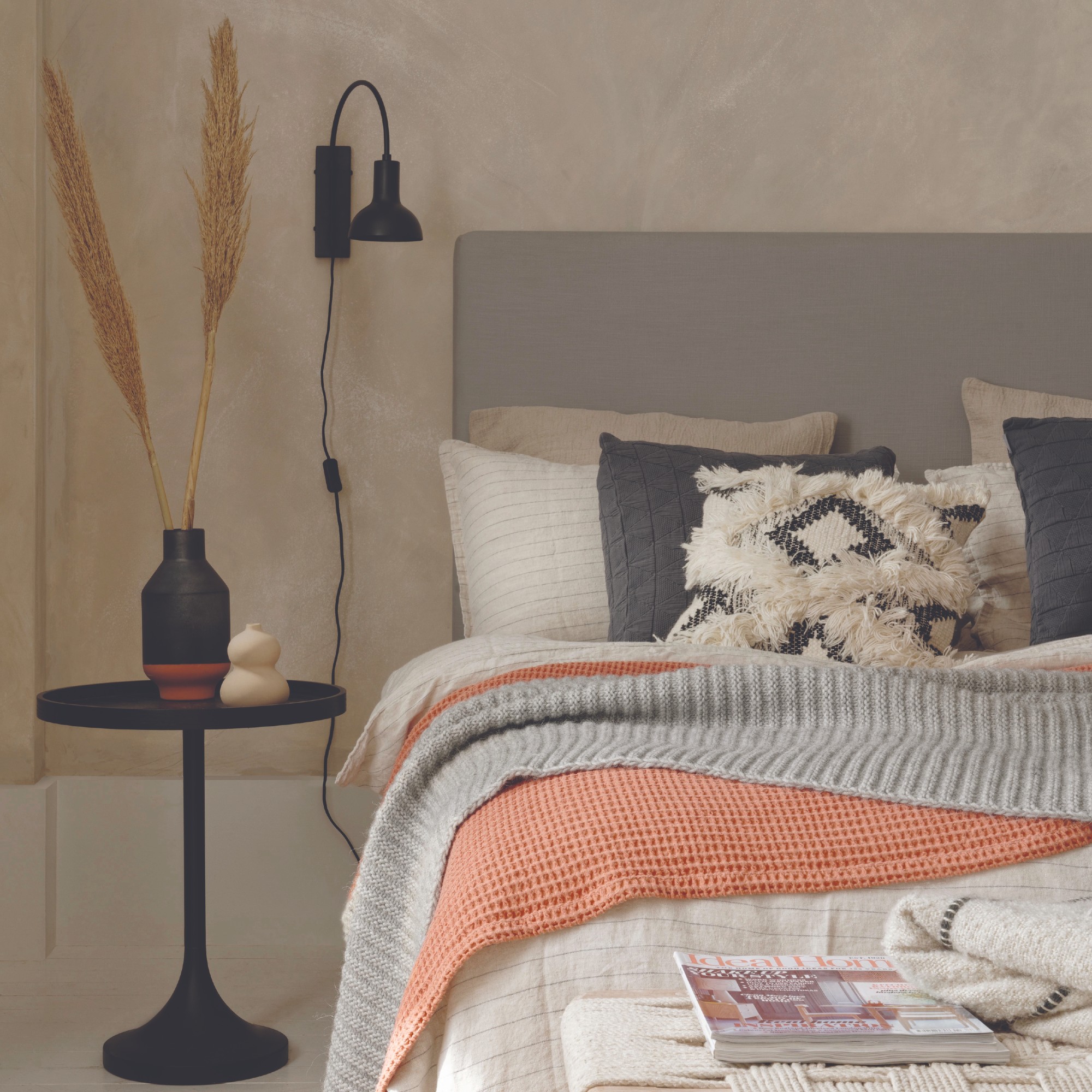
So, with this in mind, how do you choose the best mattress for your back pain? Well, testing in store would always be my first port of call if possible, but, with less and less bricks-and-mortar stores accessible I know that, sadly, this isn’t always feasible. Plus, as Dave says, 'it can take about four weeks to fully adjust to a new mattress', so testing for ten minutes in store doesn't always give you all the data you need to make your decision.
In this case I'd recommend looking for a mattress manufacturer that offers a sleep trial. This means that you can test out a mattress for usually anywhere between 30 to 200 nights to see how you get on with its feel and assess whether the mattress reduces your back pain. Simba, Emma, Nectar, Brook + Wilde, REM-fit, and Woolroom are just some of the manufacturers that offer lengthy sleep trials on their mattresses.
Beyond that, opting to buy a mattress from a retailer that offers mattresses with a range of tension options can be a great solution, as it means you're much more likely to find what feels like a medium-firm tension for your body. Three of our tried-and-tested recommendations are below.
Recommended mattresses
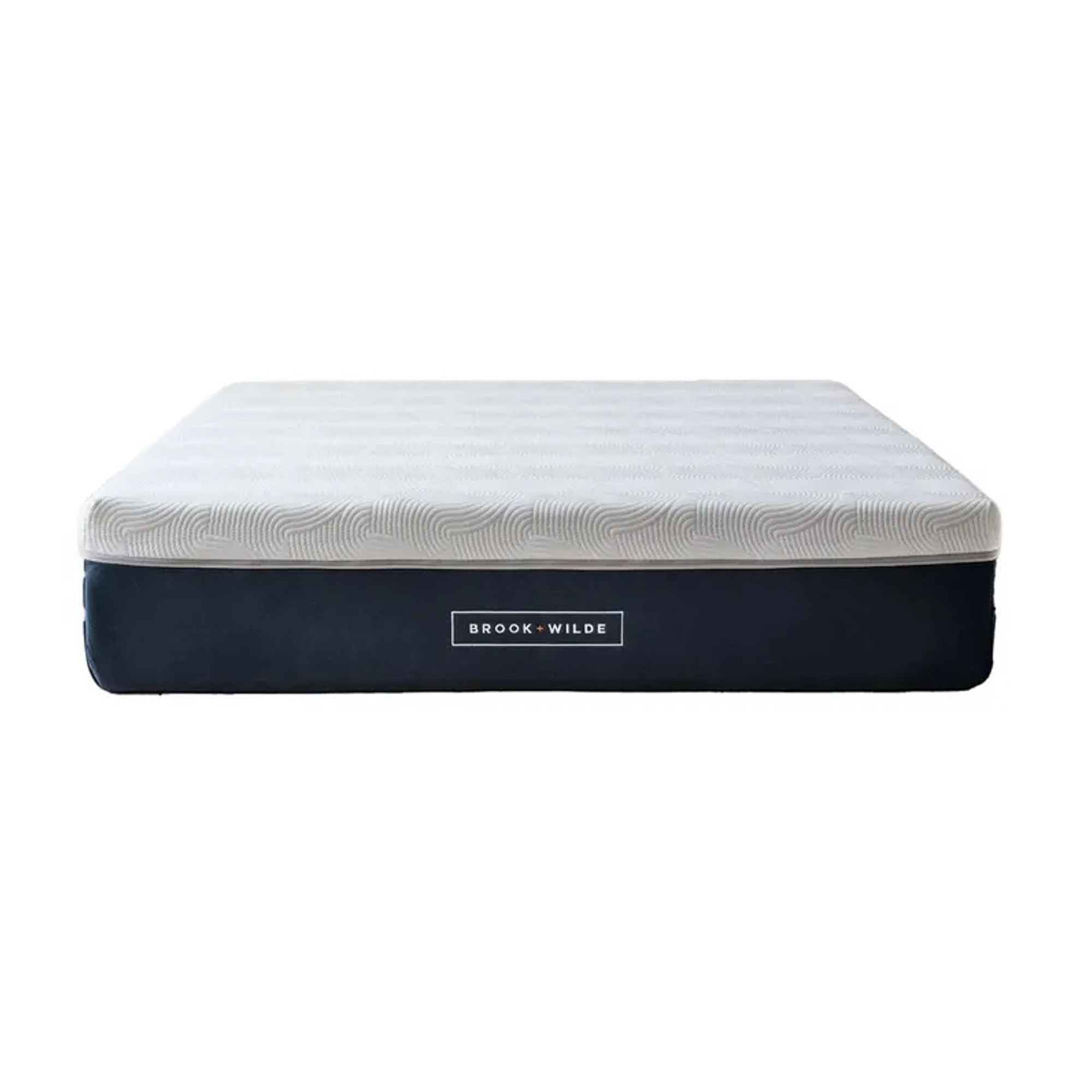
This hybrid mattress offers good spring support combined with a cushioning memory foam top layer that moulds to the natural curvature of the spine. It also comes in a choice of three firmness levels to make finding the right tension easier, and there's a 200 night sleep trial on offer. Our Brook + Wilde Ultima mattress review gave this mattress full marks.
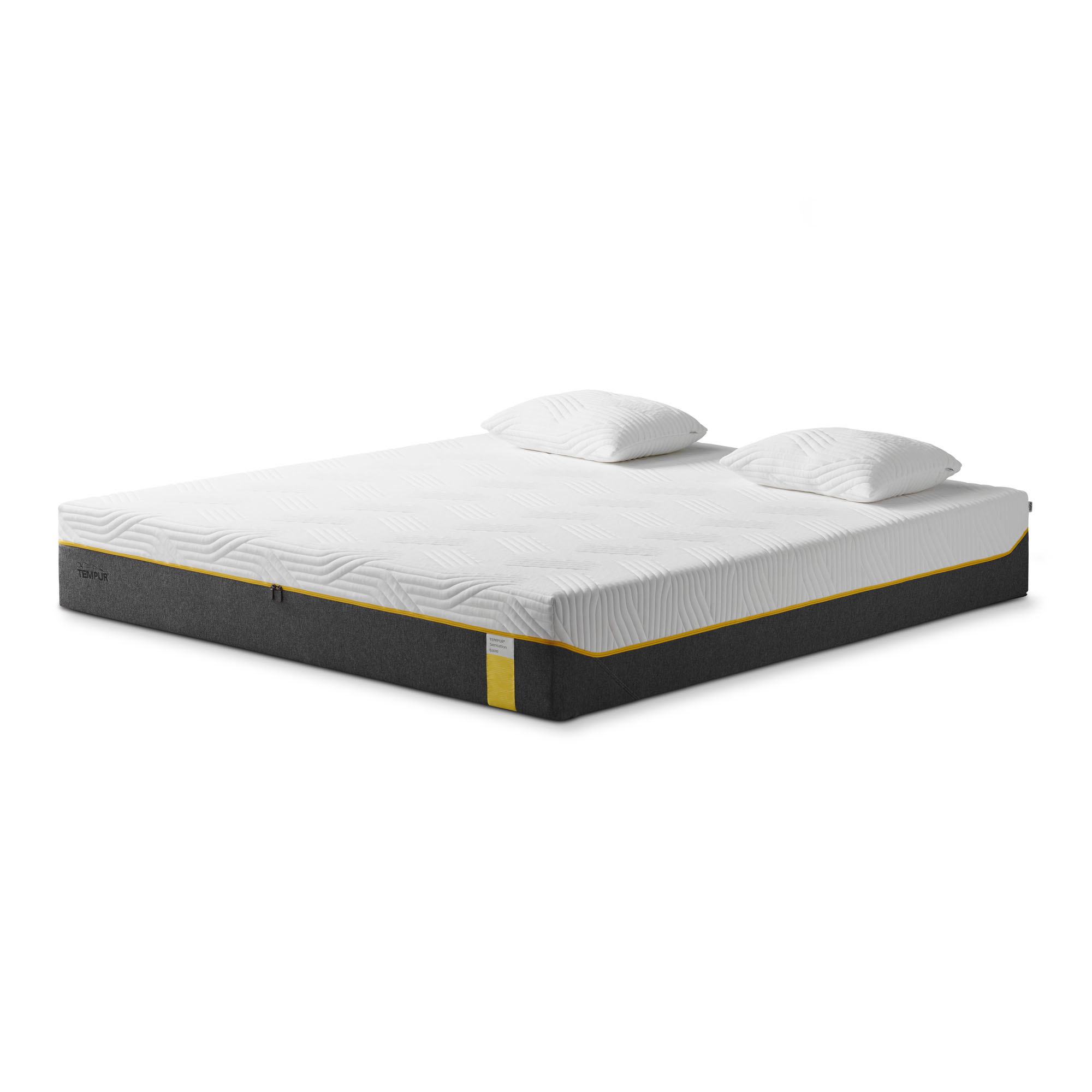
If you know you love the cushioning feel of memory foam but need a firmer tension than most one-size-fits-all memory foam mattresses provide, Tempur is the brand for you. Its all-foam memory foam mattresses come in three different tension options. We rated its firmest offering 4.5 out of 5 in our Tempur Sensation mattress review.
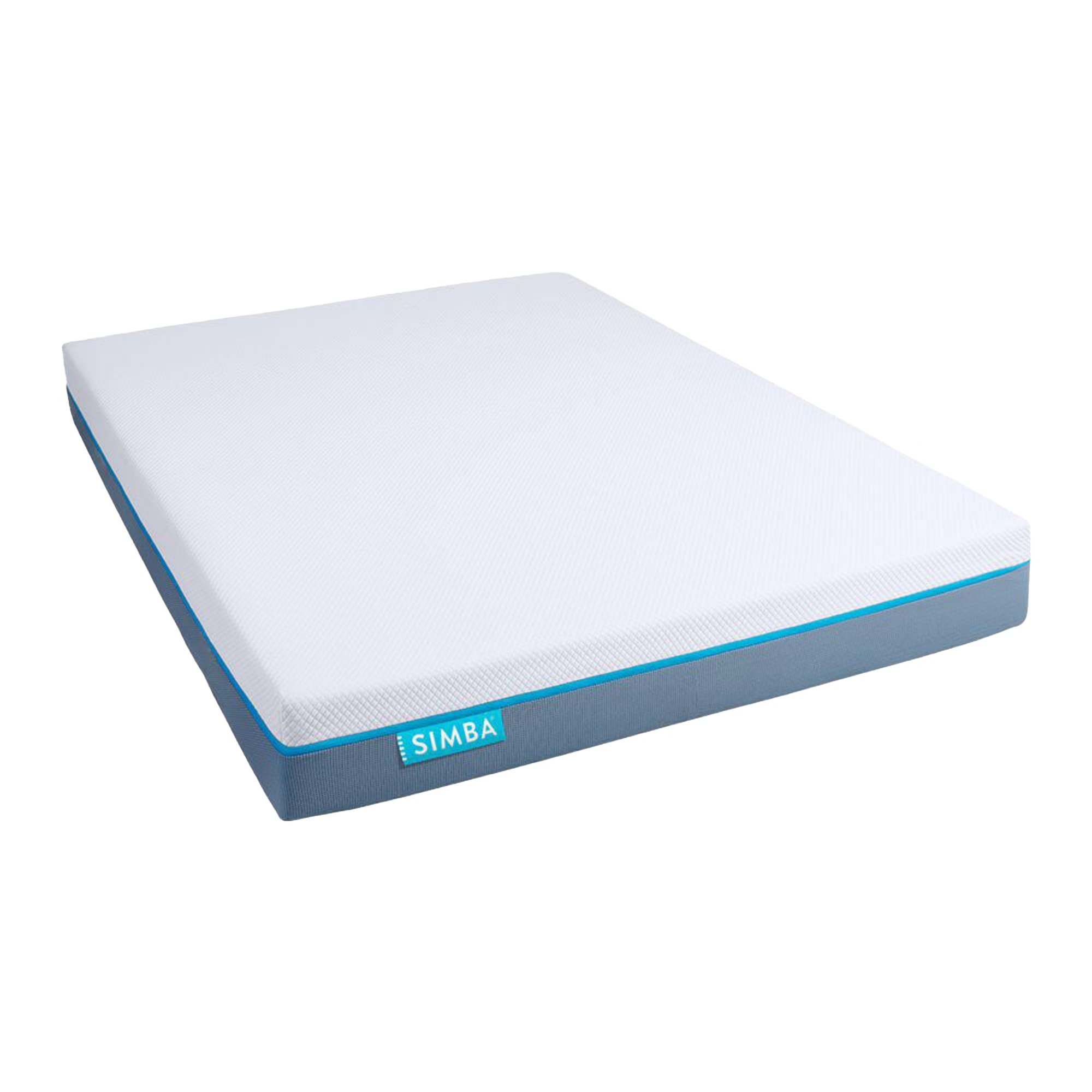
If you're looking for a budget option then although this mattress is only available in one firmness option, most of our review team rated it medium-firm, and its a crowd-pleaser that seems to suit a lot of different sleepers. Our Simba Hybrid Original mattress review rated it 5 out of 5 and dubbed it the 'Goldilocks' of the mattress world – not too soft or too firm.
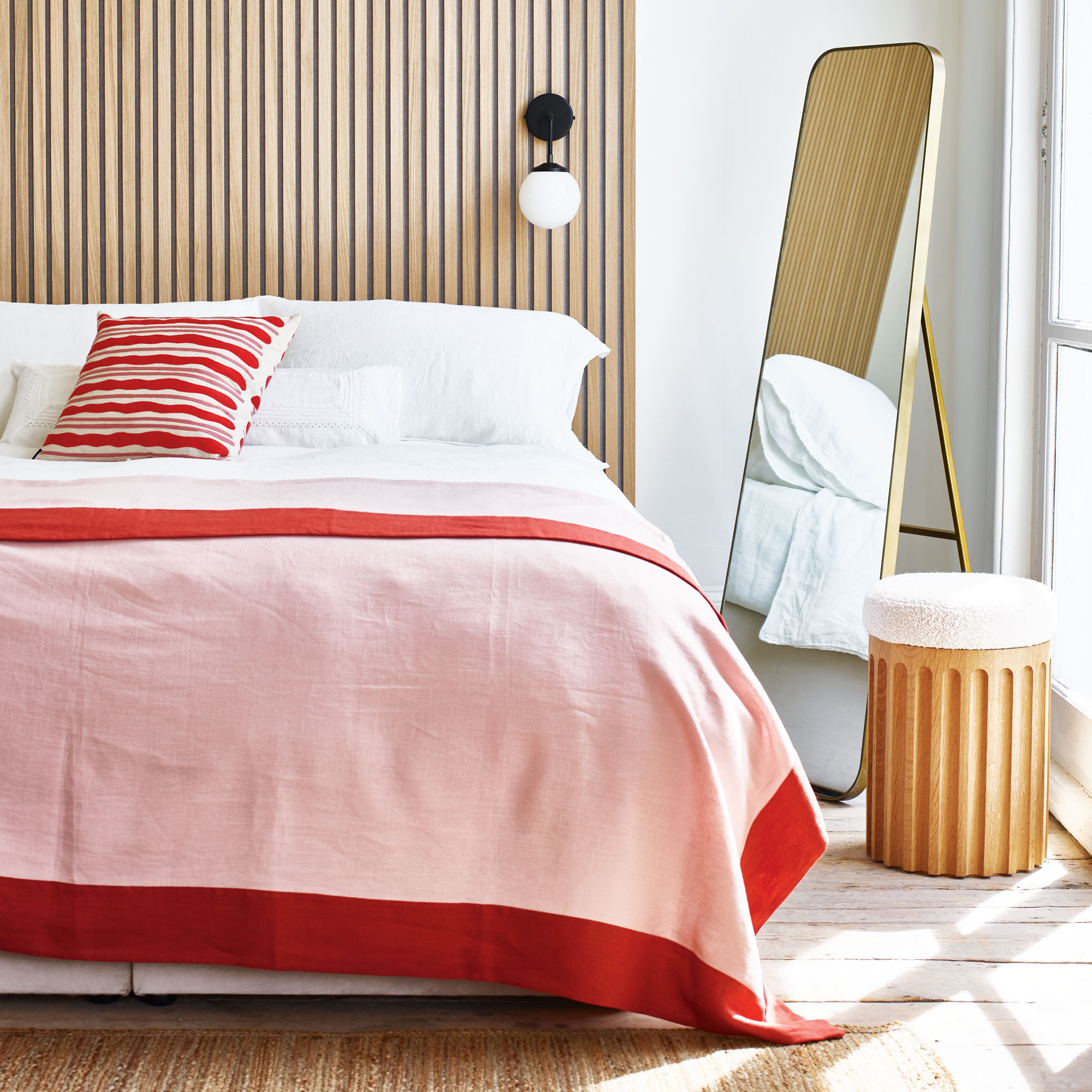
That said, it isn't just the mattress tension that can help with back pain. Finding the right type of mattress construction for your preferences can also be an imprtant factor to consider.
As Dave says, 'both traditional sprung and modern foam options can provide the necessary support to ease back pain, though they offer different sensations in terms of how they feel underneath us as we sleep. Memory foam or hybrid mattresses with foam toppers tend to contour to your body, offering a cocoon-like feel, while traditional pocket-sprung mattresses with natural fillers provide a sturdier experience'.
Personally, I'm not usually a fan of memory foam mattresses – as a hot sleeper memory foam's lack of breathability can cause me to overheat at night, and as someone who's concerned about the environmental impact of a product I prefer to opt for more eco-friendly natural-fill mattresses.
However, when I pulled my back recently and found myself struggling to sleep due to twinges and spasms of pain in the night, by far the most comfortable mattress to sleep on was the memory foam mattress I happened to be testing at the time. That's because its squidgy top layer moulded to my body as I slept and supported all areas of my back.
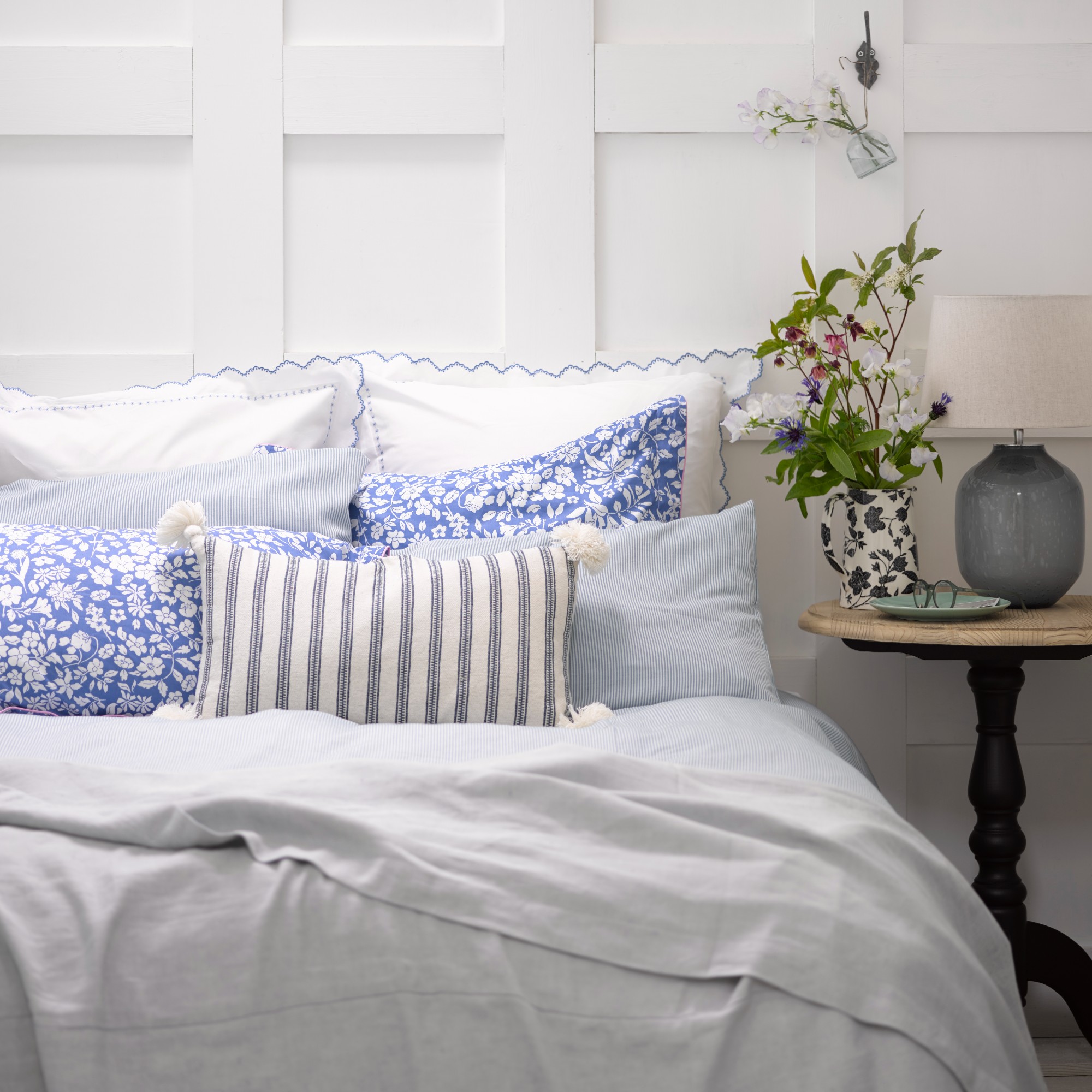
So, if back pain is a recurring issue for you, I'd definitely recommend giving a hybrid memory foam mattress a try. This type of mattress offers springs for support and then that cushioned memory foam top layer to ease aches and pains.
If your mattress is otherwise sound, then it could also be worth testing out a memory foam mattress topper before you scrap your mattress and invest in a whole new one. As sleep expert Dr Nerina Ramlakhan says, 'ideally, you should aim to change your mattress every 7-10 years'. If your mattress is newer than this, you may be able to salvage the mattress (and your sleep) with a topper instead.
The best mattress toppers can offer some additional support and cushioning that could ease a painful back. They won't fix a mattress that's too soft, but if your mattress is too firm they can add extra cushioning that allows your hips and shoulders to sink in a little deeper for better spinal alignment.
Our sleep experts

Dave is a registered Osteopath (BSC 1st class), Hypnotherapist, Naturopath, NLP Practitioner and Stress Management Coach specialising in sleep, with over 20 years of experience in wellbeing.
A dedicated Natural health care professional with extensive knowledge, Dave launched his well-regarded sleep blog, The Sleep Site, in 2014. He has also worked as the resident osteopath for BBC’s Strictly Come Dancing and within the NHS developing workshops for staff on Sleep and Wellbeing.

Dr. Nerina Ramlakhan is a physiologist who has spent over two decades helping individuals and organisations to regain a greater balance, vitality, meaning and peace by teaching them how to get better sleep.
Nerina uses her academic background in physiology, philosophy and psychology to guide her teaching. She is the original founder of BUPA’s Corporate Wellbeing Solutions, and author of Tired But Wired: How to Overcome Sleep Problems: the Essential Sleep Toolkit), Fast Asleep Wide Awake, and The Little Book of Sleep: The Art of Natural Sleep.

Amy has spent the last four years researching and writing about interiors for Ideal Home, Livingetc, Real Homes, and Homes & Gardens.
She is now Ideal Home's Sleep Editor, regularly putting the best mattresses, best duvets, and best pillows through Ideal Home's testing process to find our top recommendations for our readers.
FAQs
Is a harder or softer mattress better for back pain?
Our experts all agree that a medium-firm mattress that isn't too hard or too soft is the best bet for easing back pain. If your current mattress is causing you pain becuase it's too hard you could try softening it up with a mattress topper. If your existing mattress is too soft, then you might consider what bed base its resting on and whether you could make that firmer, otherwise it may be that you need to take advantage of some mattress deals and invest in a slightly firmer mattress.
Is pocket sprung or memory foam better for a bad back?
Based on our experts advice, the construction of the mattress doesn't tend to matter as much as its firmness level. For instance, you could have a pocket sprung or a memory foam mattress that's too soft (or too firm) for your needs.
Instead, easing back pain is about getting the mattress tension correct. So, depending on your preferences, opting for a medium-firm pocket sprung mattress or a medium-firm memory foam mattress, should deliver an improved sleep experience if you're currently sleeping on a mattress which is too soft or too firm.
Hopefully with these top tips from our experts you'll be able to find a mattress more suited to your body and make back pain a thing of the past.

Amy is Ideal Home’s Sleep Editor and the Ideal Home Certified Expert on Sleep. She's spent the last four years researching and writing about what makes for the best night’s sleep during the day and testing out sleep products to find the best-in-class by night. So far she’s clocked up over 10,000 hours of pillow, duvet, and mattress testing experience.
Our go-to for all things sleep-related, she’s slept on and under bestselling products from Simba, Emma, Hypnos, Tempur, Silentnight, Panda, and many many more.
As a hot sleeper, Amy is always on the lookout for the most breathable bedding, but she also leads a wider team of testers to ensure our product testing encompasses both hot sleepers, cold sleepers, front sleepers, back sleepers, side sleepers, and everything in-between.
-
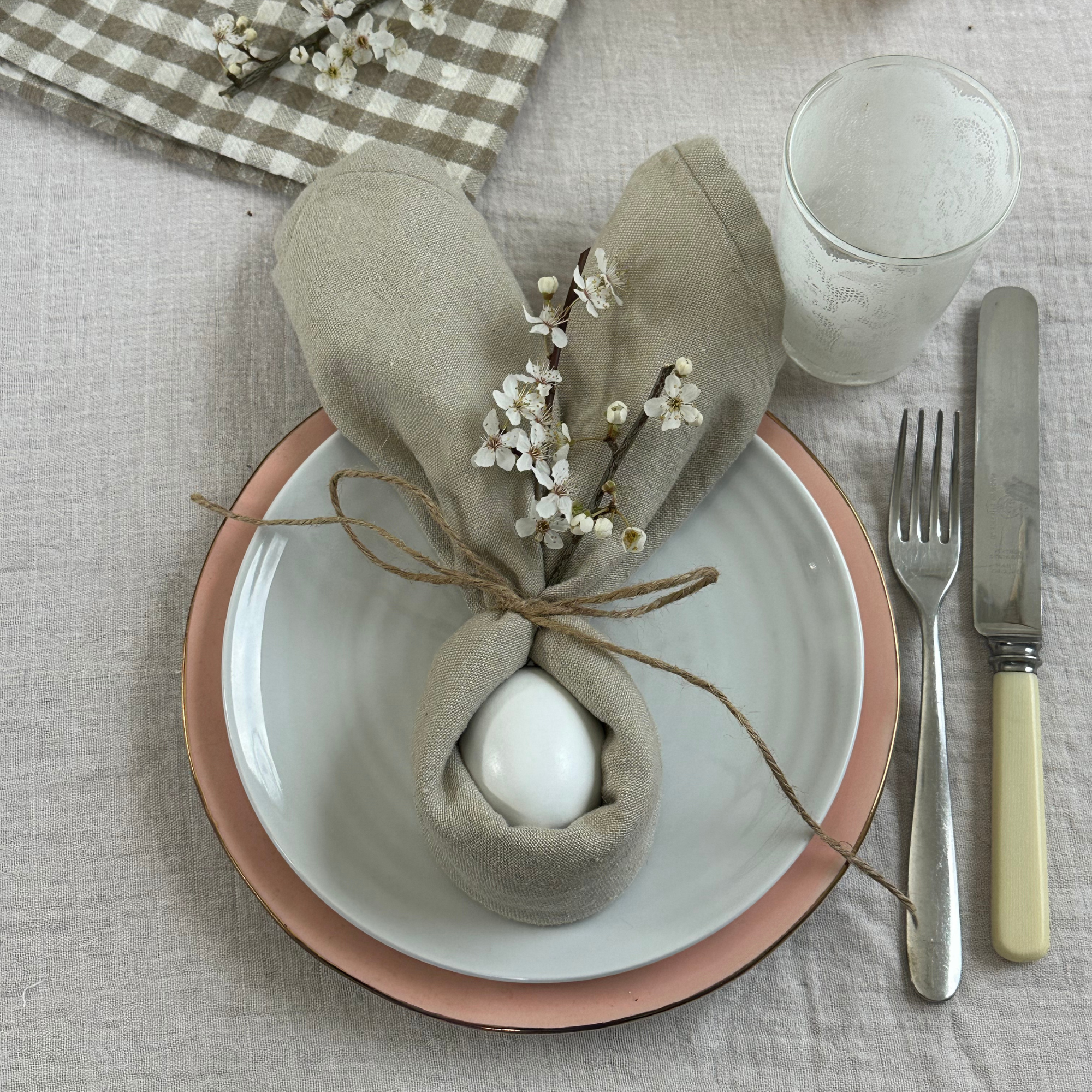 We tried the viral napkin bunny ears hack – it only takes five minutes and will take your Easter table to the next level
We tried the viral napkin bunny ears hack – it only takes five minutes and will take your Easter table to the next levelThis Easter craft is not only beautiful, but really easy to do
By Kezia Reynolds
-
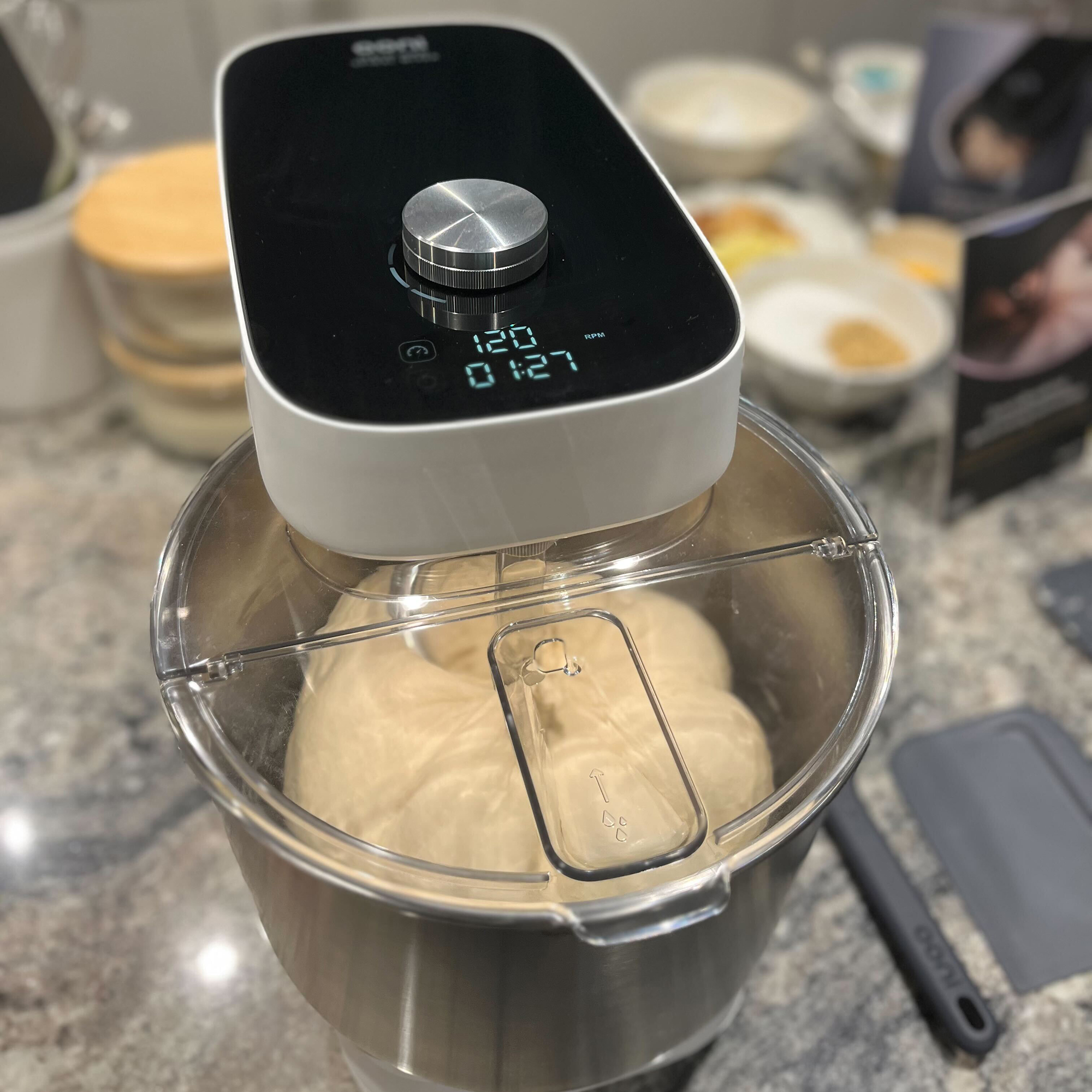 Ooni's new stand mixer is already a sell-out success
Ooni's new stand mixer is already a sell-out successHere's why the Ooni Halo Pro Spiral mixer is a big deal for at-home breadmakers
By Molly Cleary
-
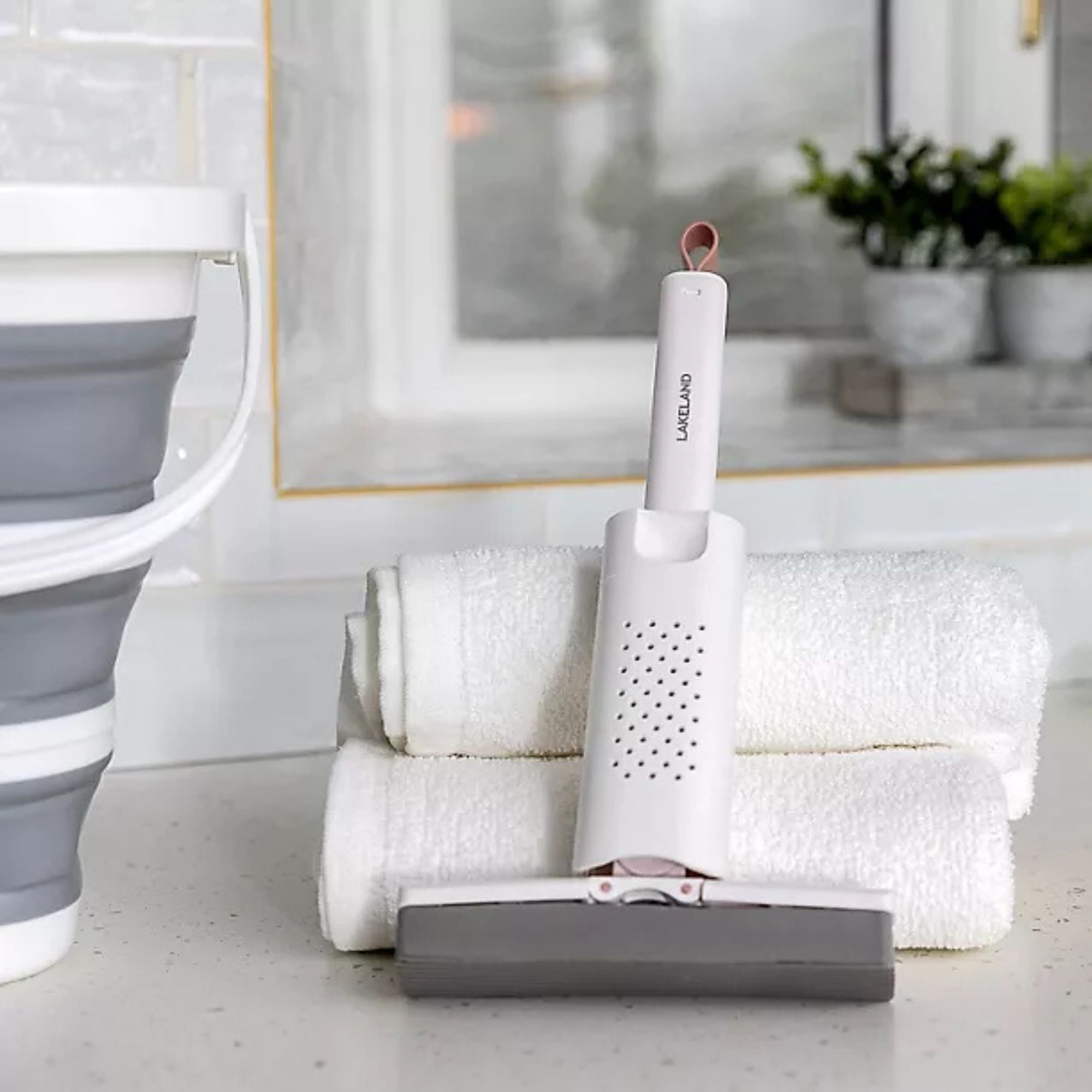 I’ve been using Lakeland’s new £5 mini mop as a shower squeegee, window cleaner and damp duster — it’s the ultimate multi-purpose cleaning tool
I’ve been using Lakeland’s new £5 mini mop as a shower squeegee, window cleaner and damp duster — it’s the ultimate multi-purpose cleaning toolYep, I've added this new mini cleaning tool to my collection
By Lauren Bradbury
-
 I'm suffering serious kitchen appliance envy over Ooni's new standmixer that sold out in 4 hours, but it's finally back in stock
I'm suffering serious kitchen appliance envy over Ooni's new standmixer that sold out in 4 hours, but it's finally back in stockHere's why the Ooni Halo Pro Spiral mixer is a big deal for at-home breadmakers
By Molly Cleary
-
 I’ve been looking for a new signature scent for my home and The White Company's new fragrance is the exact summer holiday smell I needed
I’ve been looking for a new signature scent for my home and The White Company's new fragrance is the exact summer holiday smell I neededSantorini smells fresh, summery and sophisticated
By Kezia Reynolds
-
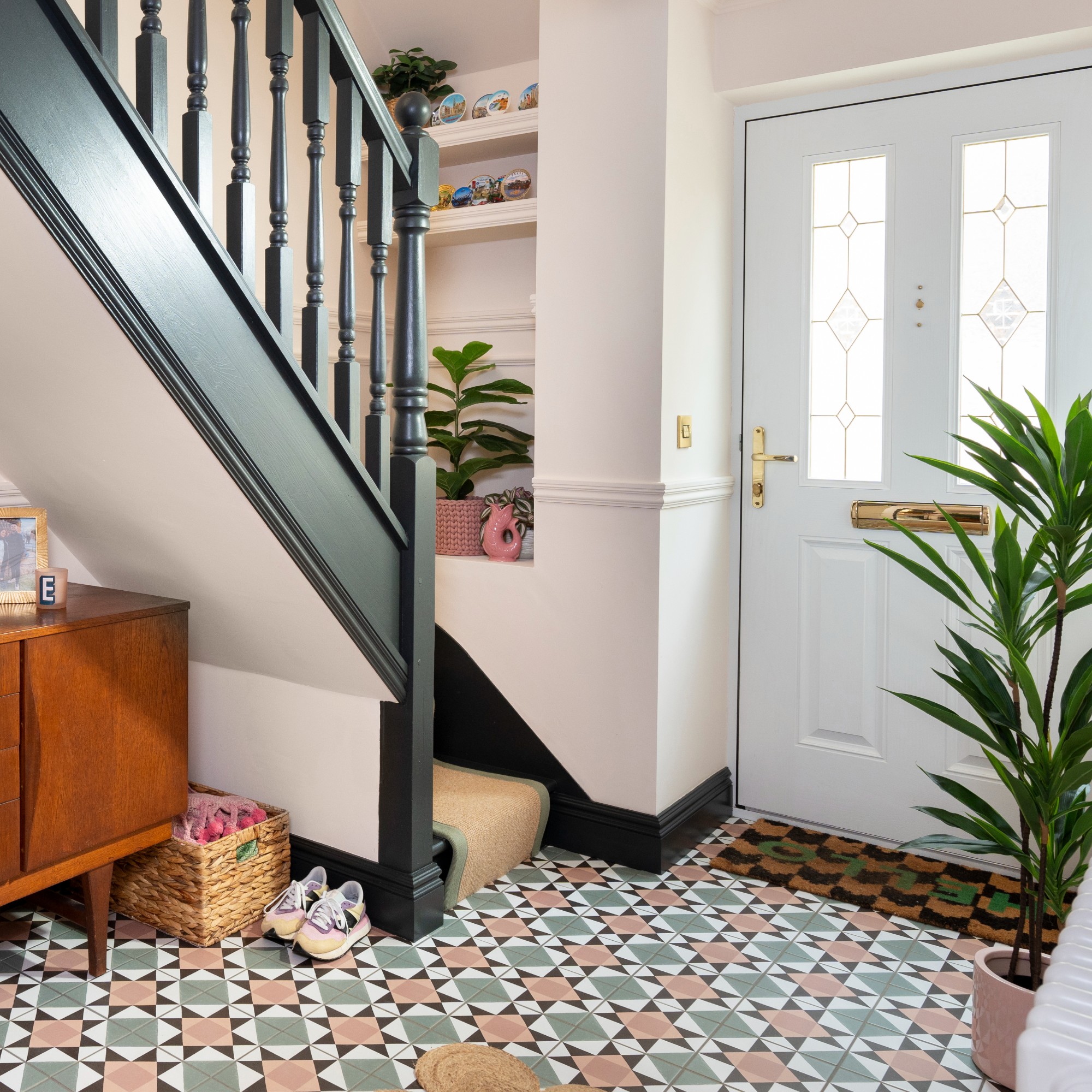 Should your doormat go inside or outside the front door? According to experts I've been getting it wrong for years
Should your doormat go inside or outside the front door? According to experts I've been getting it wrong for yearsExperts reveal the best spot for a a doormat based on your preferences and where you live
By Sara Hesikova
-
 IKEA has just launched a massive 96 new products - but these are the only pieces you need to pay attention to
IKEA has just launched a massive 96 new products - but these are the only pieces you need to pay attention toThe classic STOCKHOLM collection just got even better
By Kezia Reynolds
-
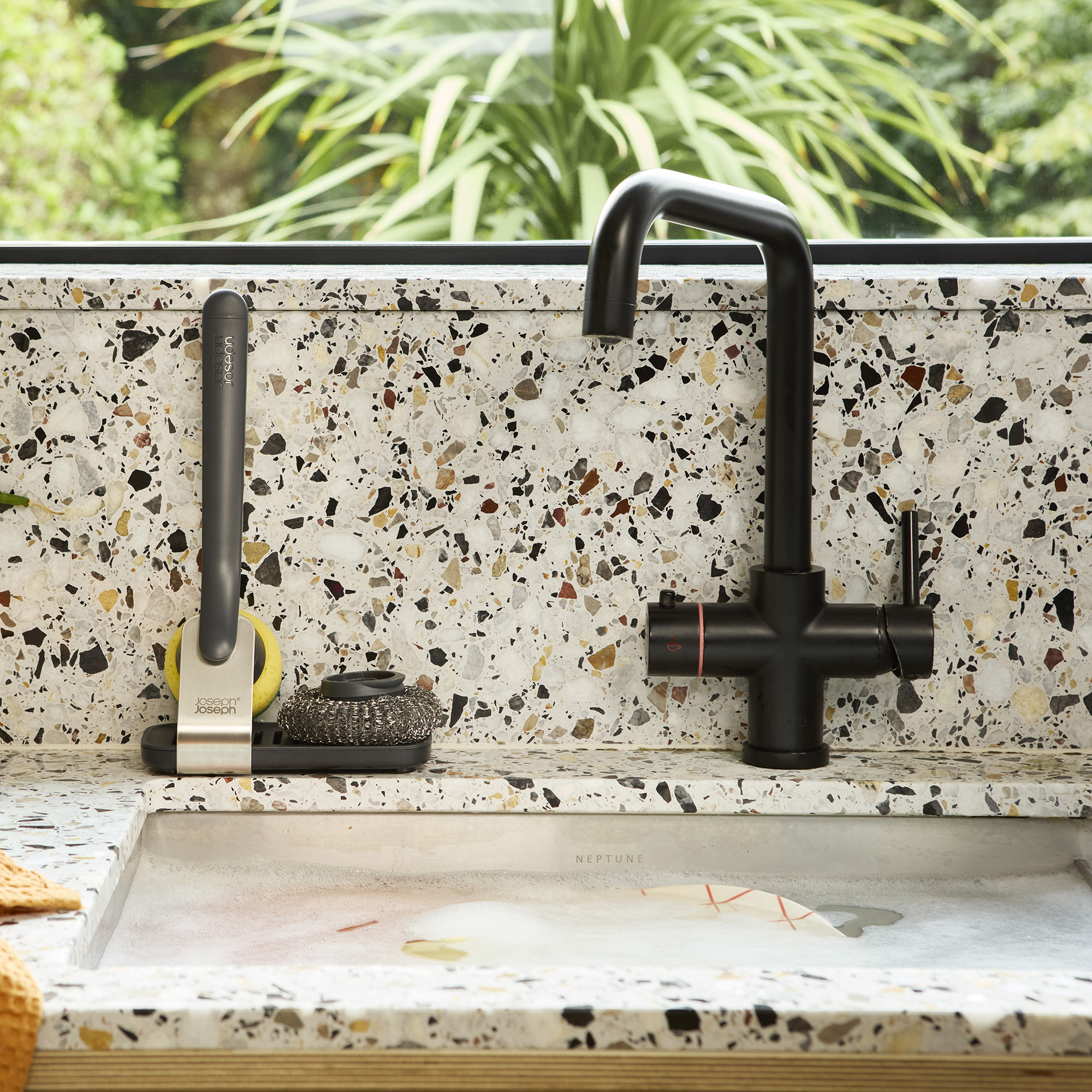 I finally got my hands on Joseph Joseph's genius Sink Tech range - my small kitchen sink has never looked so good
I finally got my hands on Joseph Joseph's genius Sink Tech range - my small kitchen sink has never looked so goodI didn't know stylish washing up accessories existed until I saw this collection
By Holly Cockburn
-
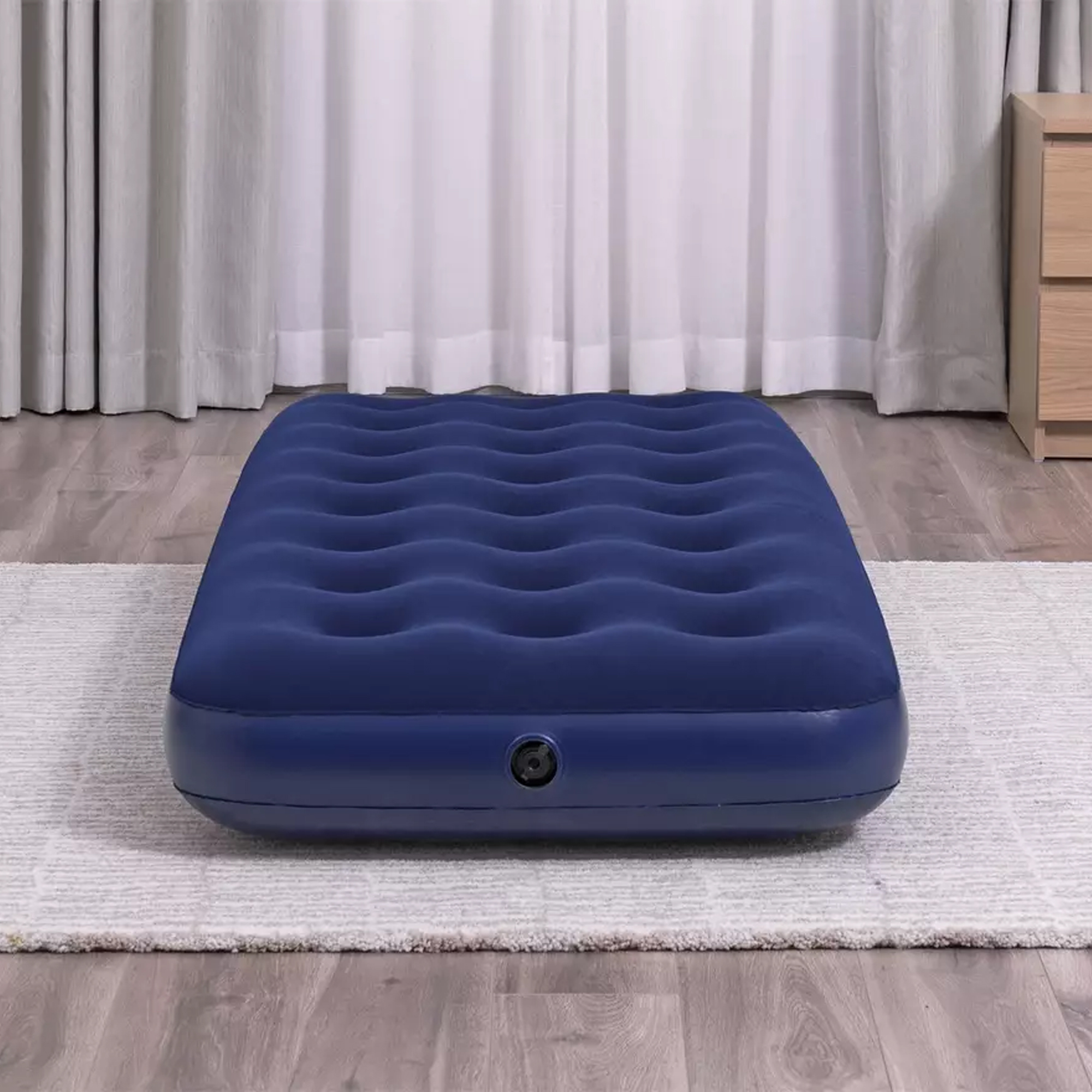 Argos is now selling an air bed for under £12 – if you're hosting guests this Easter Bank Holiday weekend, you'll want this sale on your radar
Argos is now selling an air bed for under £12 – if you're hosting guests this Easter Bank Holiday weekend, you'll want this sale on your radarThis 25% off sale is perfectly timed ahead of Easter weekend
By Amy Lockwood
-
 Rochelle Humes’ living room seating is ‘sofa goals’, and I found an almost identical high street alternative for under £1000
Rochelle Humes’ living room seating is ‘sofa goals’, and I found an almost identical high street alternative for under £1000You can now get the singer and TV presenter's modular sofa of dreams for less thanks to DUSK
By Sara Hesikova
-
 I finally got my hands on the sellout Morris & Co armchair from Habitat, and it looks even better in person
I finally got my hands on the sellout Morris & Co armchair from Habitat, and it looks even better in personIt's back in stock, and well worth the wait
By Rebecca Knight